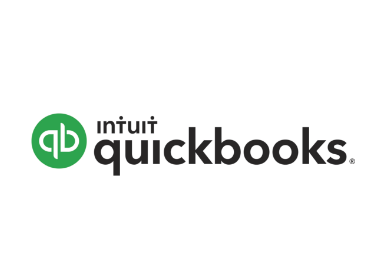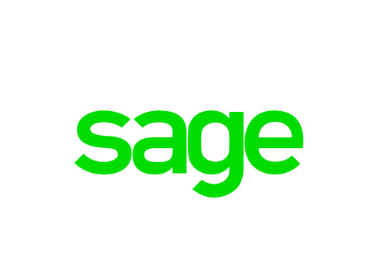How to protect your business by managing cash
Posted on 3rd December 2020 by David Rudd
As a small business owner, managing the cash coming into and out of your business is essential for protecting your business from risk. Cash management includes the collection, handling and usage of your cash.
Poorly managed cash as a result of delayed payments and unpaid bills can stunt business growth and recovery. Bad debt, which is formed when your customers don’t pay what they owe you, can severely impact your cash flow and profit.
During these tough times, it is important that you know your customers and you are managing your debtors efficiently to get paid on time. To help you protect the cash flow of your business, this article will cover the following points:
- What bad debt can mean for your business
- How to use bookkeeping to manage your cash flow and identify bad debt
- How to use automation as part of your debt management process
- What to do if your customers aren’t sticking to payment terms
- Why you should seek professionals to help
What bad debt can mean for your business
In short, bad debt can be extremely damaging to your cash flow. Direct Line reported that in 2016 alone, British SMEs wrote off £5.8 billion in debt. 40% of those same SMEs reported that they didn’t know how much money was owed to them by their debtor. In addition to this, QuickBooks released a report that found almost 57% of UK SME business owners had experienced problems with their cash flow.
Not being able to identify bad debts can have serious consequences. Unfortunately, for all businesses cash flow can be difficult to predict unless you have the right tools and expertise in place. Cloud accounting tools such as Xero, Quickbooks and Sage can make this much easier to manage and predict, our team has experience with all of these cloud accounting tools. The late payment of just one invoice can be enough to turn your positive cash flow into negative, especially if you can’t track who missed a payment.
To protect your business from bad debts, you should attempt to prepare for late or missed payments by effectively managing your cash flow. Good bookkeeping and automation of debt management can make the process easier.
How to use bookkeeping to manage your cash flow and identify bad debt
Bookkeeping is the first and most necessary step to good cash flow management. It will help you maintain an accurate record of your business’s financial transactions.
If you are bookkeeping correctly, you will be able to easily see the money that is coming in and out of your business through purchases, sales, receipts and payments. However, bookkeeping alone won’t make cash flow management easy.
In an ideal world, most businesses would like to have more money flowing in than out of their account. One way to do this is to flag customer accounts that are causing bad debt by falling behind on payments quickly, building up a trend or picture of payments behaviour by each of your customers. We would also recommend communicating with your customers regularly, which keeps communication channels open and allows you to keep an eye on their business. This includes credit checks if necessary, all of which can help you resolve any issues or disputes with payments much quicker.
By using your digital bookkeeping tools effectively, you will be able to clearly see how likely you are to fall into a negative cash flow and how much this is affecting your overall finances. You will be able to identify bad debt whilst being able to plan for the future by:
- Increasing earnings or reducing spending
- Identifying late payments
- Budgeting/setting credit controls
- Limiting big expenses
How to use automation as part of your debt management process
Manually keeping on top of your bookkeeping is very time consuming. With the help of digital accounting software, you can easily monitor your cash flow while knowing when action is required to prevent bad debts.
Xero
Xero is perfect for small businesses and the management of your cash flow. The software has a variety of time saving tools to help you manage all aspects of your accounts. It can visualise your cash flow, automate invoice reminders and record any bad debts.
The cloud based software allows for sales invoices to be created on the move. The flexibility provided by Xero means you are less likely to forget to send invoices plus your credit terms start as soon as you send your invoices out, regardless of your location. With Xero, you will also have access to an automated bank feed with an up-to-date list of receivables ensuring you can identify outstanding payments.
As chartered accountants, we’d recommend using a platform such as Xero to simplify your debt management. Most professional accountants can integrate with the platform for further support. At Steven Burton and Co, we are qualified Xero Advisors with experience using Xero alongside a range of SME clients.
What to do if your customers aren’t sticking to payment terms
You should act promptly and robustly when chasing customers for overdue payments. In the past, you may have thought of legal action as a last resort, however in the challenging times that we are now facing, this may be a necessity, even if it affects your relationship with the customer.
Get ahead of the risk of potential bad debt, by being able to recover most, if not all of the money owed to you before a customer goes out of business.
To find out how we at Steven Burton & Co can help you manage your cashflow, get in touch with us.
Why you should seek professionals to help
Managing debt, bookkeeping and automation can all be taxing for a small business owner who has many other responsibilities. We know how busy running a business can be at Steven Burton & Co, that’s why we offer our expert solutions to solve your problems.
Our team of qualified Association of Chartered Certified Accountants are on hand to simplify your accounts while providing expert advice. If you are looking for an easier way to manage your accounts and protect your business, find out more about the support that we can offer you.
Join in on the conversation over on social media.









